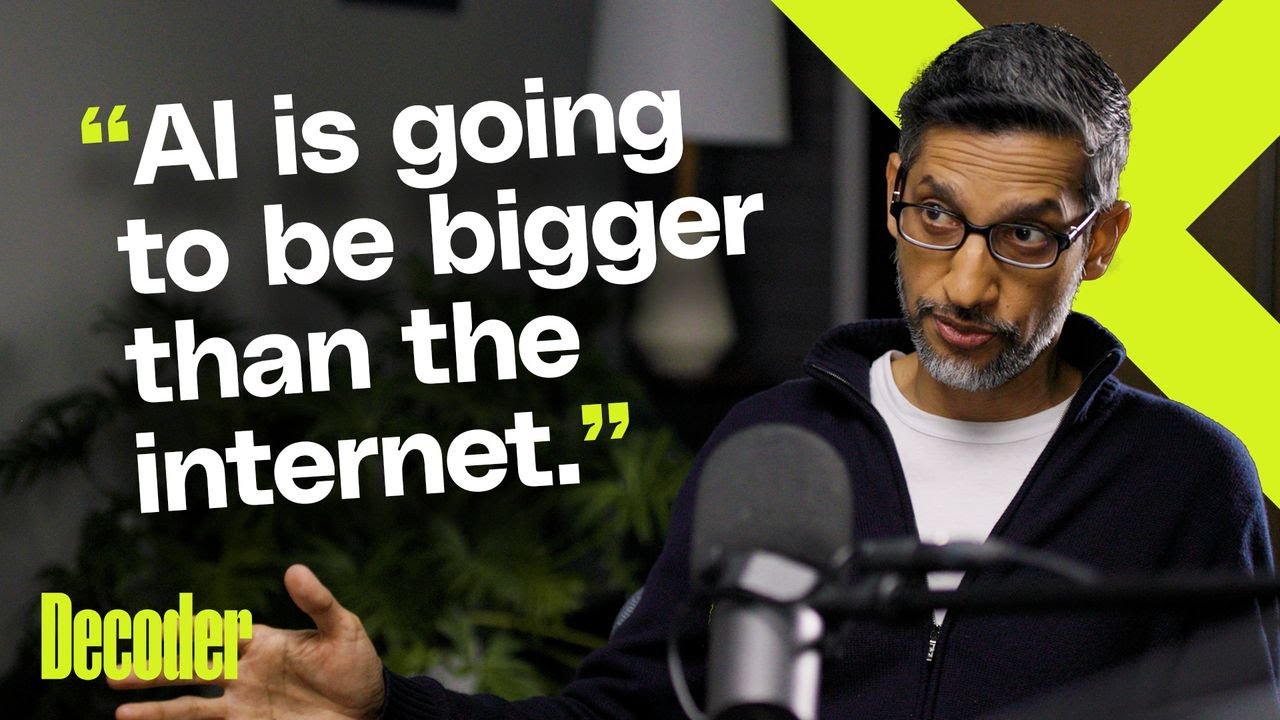Google CEO Sundar Pichai highlights how AI advancements are transforming products, search, and user experiences, positioning AI as a foundational platform akin to electricity. He also discusses the future potential of AI-driven robotics and augmented reality to create tangible, real-world applications across industries.
In the interview, Google CEO Sundar Pichai discusses the rapid advancements and confidence in Google’s AI capabilities, highlighting recent product launches and technological breakthroughs. He emphasizes that Google’s progress stems from its deep research in AI, which is now translating into tangible products. Pichai points out that Google is pushing the boundaries across various dimensions, such as diffusion models and world models, and is excited about bringing these innovations to consumers soon. The overall tone reflects a strong belief that AI is becoming a foundational platform, akin to electricity, transforming how products are built and experienced.
Pichai elaborates on the current phase of AI development, comparing it to past platform shifts like the internet and mobile. He describes this as a new era where natural language interaction and self-improving systems will fundamentally change user interfaces and content creation. He likens the current moment to the advent of blogging or dynamic web applications, where AI will enable a wave of new products and creative possibilities. This phase is characterized by making AI tools more accessible to a broader range of people, allowing many to develop innovative applications that were previously out of reach.
The conversation then shifts to the impact of AI on existing products and the web ecosystem. Pichai notes that AI is expanding the amount of content consumed and created online, with more creators and richer media formats. He discusses how AI-driven tools are making content production more dynamic and seamless across formats, and how the web remains a vital platform, now at an all-time high as an application space. Despite concerns about AI reducing the importance of traditional search, he asserts that Google’s goal is to send traffic to the web and enhance the quality of search results, expecting overall traffic and engagement to grow with AI integration.
Addressing concerns from publishers and the broader ecosystem, Pichai defends Google’s approach to content and search. He emphasizes that Google’s AI products are designed to provide more context and sources, not to steal or diminish publisher traffic. He explains that Google’s ranking system is based on complex signals like citations and links, not individual content decisions, and that the company remains committed to sending traffic to the web. He also highlights that AI overviews tend to increase overall traffic and that Google continuously iterates to improve the quality and reliability of its search results, maintaining high standards of accuracy and trust.
Finally, Pichai discusses the future of the platform shift driven by AI, including the potential of robotics and augmented reality. He envisions a world where AI will enable general-purpose robots and seamless interactions with the physical environment, representing the next major leap in technology. He underscores that the true marker of this shift will be when AI begins to create tangible, physical-world applications, transforming industries like healthcare, manufacturing, and everyday life. Looking ahead, he remains optimistic about the ongoing innovation, emphasizing that AI’s self-improving nature and its integration into robotics will be the next big frontier, shaping the future of computing and human interaction.
